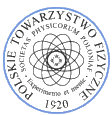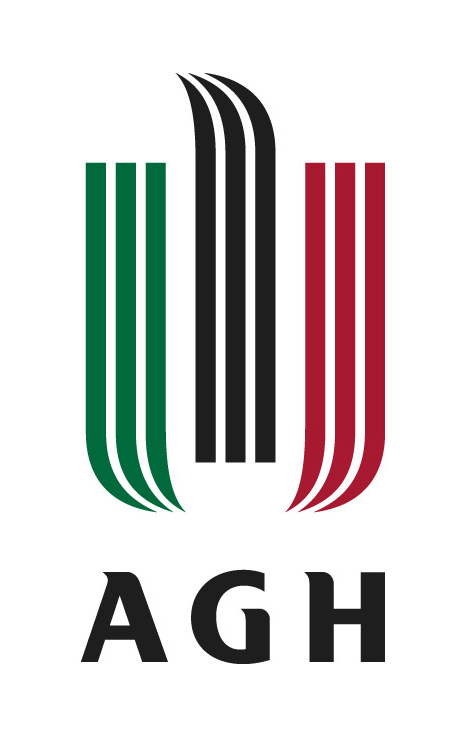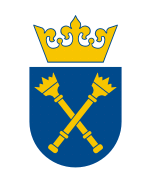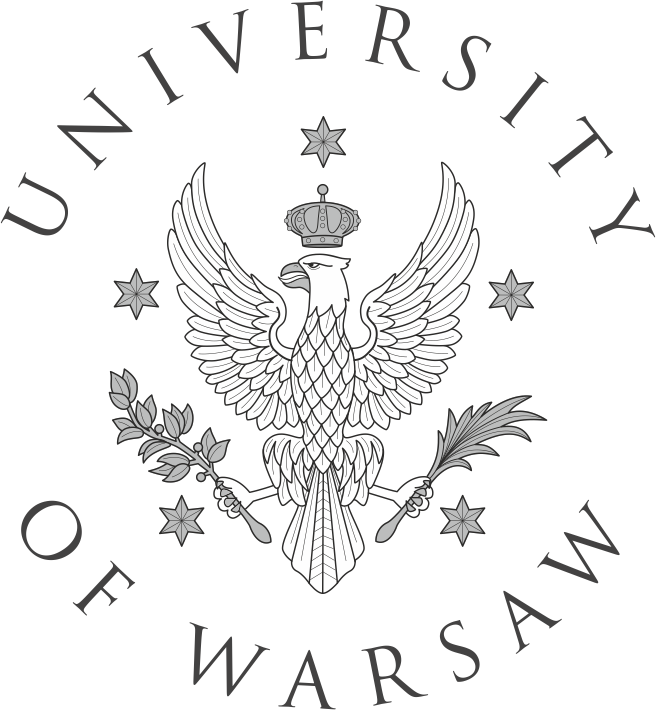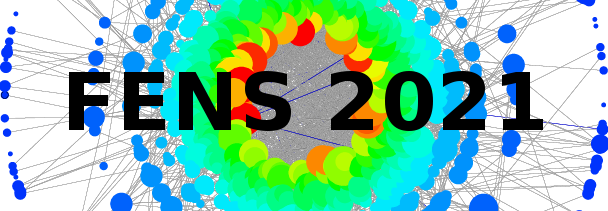Post-conference publications
Every registered participant of Symposiom may wish to submit full paper for consideration of its publication in topical issues of Entropy:
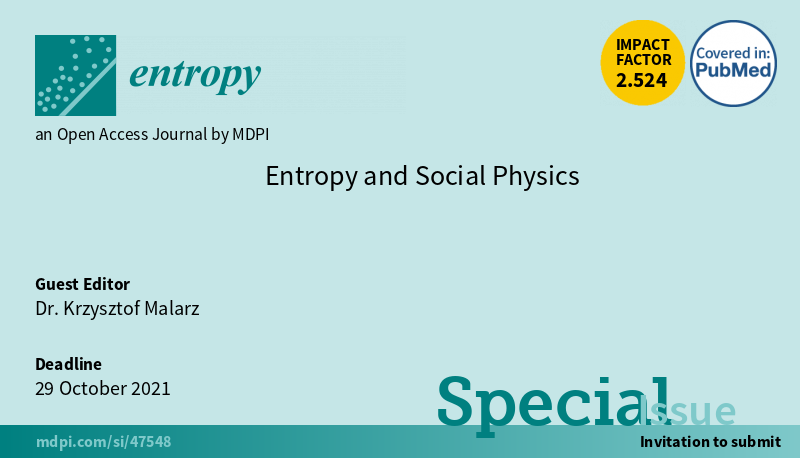
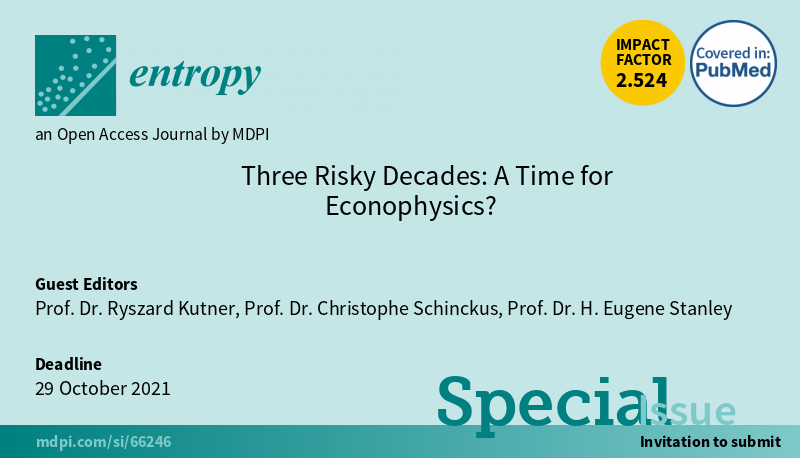
The papers will be refereed by the standard method. In case of acceptance the 20% discount of article processing charge will be applied for registered participant of the conference.
Best poster award
An award (300 CHF) sponsored by Entropy journal for the best poster
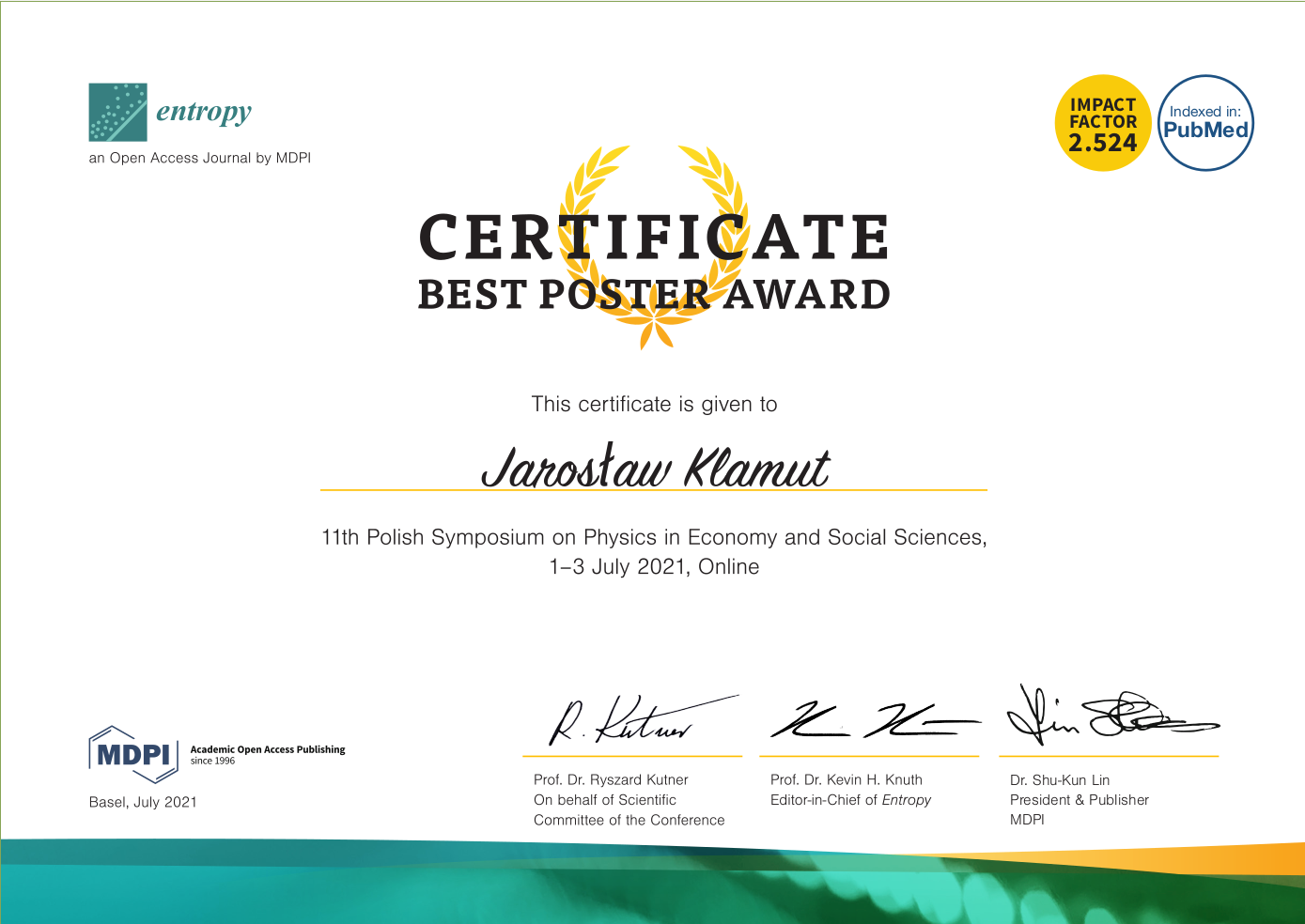
went to Mr. Jarosław Klamut for presentation of poster
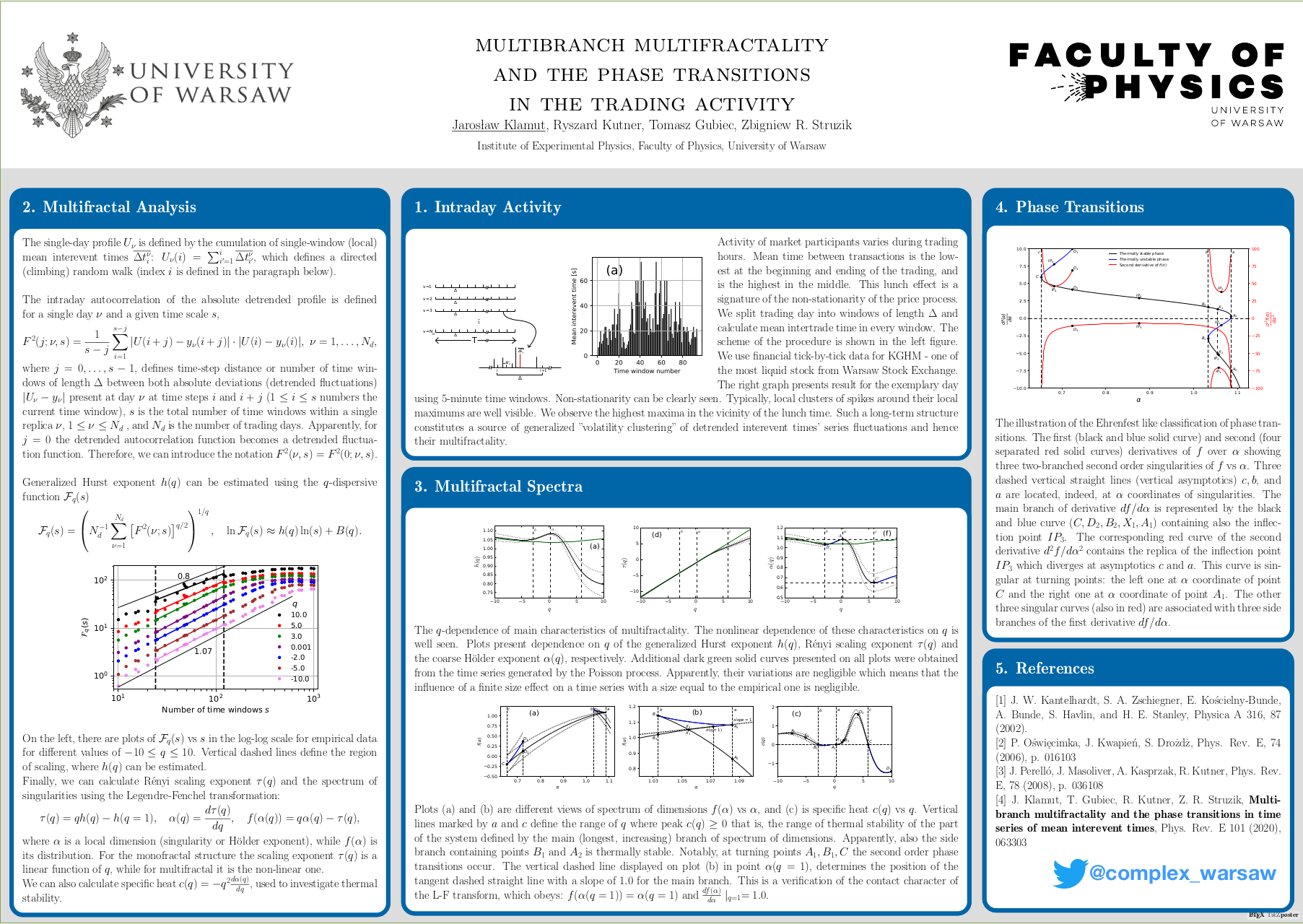
entitled Multibranch multifractality and the phase transitions in the trading activity by J. Klamut, R. Kutner, T. Gubiec, and Z. R. Struzik.
General info
The Polish Symposium on Physics in Economy and Social Sciences (FENS - Fizyka w Ekonomii i Naukach Społecznych) has a traditon of gathering physicists, economist and social scientists interested in application of physical methods in economy and social sciences. The Symposium is lead by
- Section of Physics in Economy and Social Sciences, Polish Physical Society
in cooperation with:
- Faculty of Physics and Applied Computer Science, AGH University of Science and Technology;
- Faculty of Physics, Astronomy and Applied Computer Science, Jagiellonian University;
- Institute of Nuclear Physics, Polish Academy of Sciences;
- Faculty of Physics, University of Warsaw.
The Symposium focuses on:
- Structure and evolution of complex networks in socio-economic context.
- Role of complex adaptive systems in socio-economic phenomena and processes.
- Dynamic of conflicts and social polarisation.
- Behavioural modelling and irrational choice, the role of random chance and information in economic and social phenomena.
- Modelling of opinion evolution and the spread of innovation.
- Complexity and emergence in socio-economic systems.
- Computational methods in economy and social sciences.
- Financial time series: equilibrium and non-equilibrium properties, linear and non-linear, fractal and multifractal, memory effects, correlations and dependencies, non-stationarity.
- Random matrix theory.
- Game theory.
- Algorithmic value investing on stock market.
- Thermodynamic formalism in economy.
- Role of non-extensiveness on financial markets.
- Role of extreme and superextreme events on financial markets.
- Risk management and propagation of risk vs. share of wallet; financial engineering.
- Models of market dynamics, especially agent-based models in micro- and macroscale.
Invited speakers
- Stanisław Drożdż (Institute of Nuclear Physics Polish Academy of Sciences and Cracow University of Technology, Poland)
- Serge Galam (Centre for Political Research, Sciences Po, and CNRS, France)
- Shlomo Havlin (Department of Physics, Bar-Ilan University, Ramat-Gan, Israel)
- Janusz Hołyst (Faculty of Physics, Warsaw University of Technology, Poland)
- Adam Kleczkowski (University of Strathclyde, Scotland)
- Krzysztof Kułakowski (Faculty of Physics and Applied Computer Science, AGH University of Science and Technology, Poland)
- Fabrizio Lillo (Dipartimento di Matematica, Università di Bologna, Italy)
- Thomas Lux (Department of Economics, University of Kiel, Germany)
- Rosario N. Mantegna (Palermo University, Italy)
- Tiziana Di Matteo (King’s College London, UK)
- Ryszard Kutner (Faculty of Physics, University of Warsaw, Poland)
- Frank Schweitzer (ETH Zürich, Switzerland)
- Didier Sornette (ETH Zürich, Switzerland)
- Katarzyna Sznajd-Weron (Wrocław Technical University, Poland)
- Boleslaw Szymanski (Rensselaer Polytechnic Institute, Troy, NY, USA)
Organizing committee
- Bartłomiej Dybiec (Jagiellonian University)
- Przemysław Gawroński (AGH University of Science and Technology)
- Małgorzata Krawczyk (AGH University of Science and Technology)
- Jarosław Kwapień (The Henryk Niewodniczański Institute of Nuclear Physics, Polish Academy of Sciences)
- Krzysztof Malarz (AGH University of Science and Technology)
- Paweł Oświęcimka (The Henryk Niewodniczański Institute of Nuclear Physics, Polish Academy of Sciences)
Scientific committee
- Marcel Ausloos (University of Leicester)
- Dariusz Grech (University of Wrocław)
- Shlomo Havlin (Bar-Ilan University)
- Janusz Hołyst (Warsaw University of Technology)
- Ryszard Kutner (University of Warsaw)
- Rosario N. Mantegna (Central European University & Palermo University)
- Tiziana Di Matteo (King’s College London)
- Maciej Nowak (Jagiellonian University)
- Arkadiusz Orłowski (Warsaw University of Life Sciences & Polish Academy of Sciences)
- Enrico Scalas (University of Sussex)
- Christopher Schinckus (University of Leicester)
- Didier Sornette (ETH Zurich)
- Zbigniew Struzik (Tokyo University)
- Katarzyna Sznajd-Weron (Wrocław Technical University)
- Magdalena Wojcieszak (University of California)
Fees
There is no Conference fee
Deadlines
Registration (closed): June 15, (extended) June 22, 2021 (number of participants is limited)
Abstract acceptance (closed): May 31, 2021
Abstract submission (closed): April 30, 2021
Satellite events
- on Wednesday, June, the 30th, SFINKS@FENS11 Warm-Up will take place. The warm-up is a one-day school (for students and early-stage researchers) which offers several tutorials on various aspects of scientific work and a quiz with prizes;
- on Saturday, July, the 3rd, at 2 PM, during the closing ceremony, the results of biennale competition for the best doctoral, master's and bachelor's theses organized by the Polish Physical Society Section Physics in Economy and Social Sciences will be annouced;
- on Saturday, July, the 3rd, at 3 PM the Open Meeting of the Polish Physical Society Section Physics in Economy and Social Sciences will take place.
Previous FENS Conferences
- FENS 2004 (Warszawa) — Acta Physica Polonica B 36(8), (2005)
- FENS 2006 (Kraków) — Acta Physica Polonica B 37(11), (2006)
- FENS 2007 (Wrocław) — Acta Physica Polonica A 114(3), (2008)
- FENS 2009 (Rzeszów) — Acta Physica Polonica A 117(4), (2010)
- FENS 2010 (Warszawa) — Acta Physica Polonica A 121(2-B), (2012)
- FENS 2012 (Gdańsk) — Acta Physica Polonica A 123(3), (2013)
- FENS 2014 (Lublin) — Acta Physica Polonica A 127(3-A), (2015)
- FENS 2015 (Rzeszów) — Acta Physica Polonica A 129(5), (2016)
- FENS 2017 (Warszawa)
- FENS 2019 (Otwock-Świerk) — Acta Physica Polonica A 138(1), (2020)
- FENS 2021 (
KrakówOn-line)- Entropy: Three risky decades: A time for econophysics?
- Entropy: Entropy and social physics
Organizers
